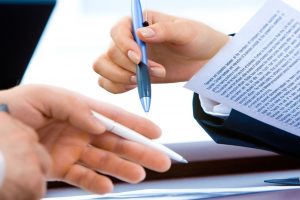Ok, so what happened?
Employees did not show up high for work & they did not smoke a joint at their desk. There was no baked cannabis for ‘pot luck” lunches. (no pun intended) Employees did not lite up at smoke breaks.
So, why all the hype then???
Many employers already had the protocols in place, the drug & alcohol policies, reporting procedures and smoke free workplace policies. The facts are that October 17, 2018 did not usher in any new rights for employees, no new obligations to permit, condone or forgive cannabis use in any work related context.
RECRATIONAL MARIJUANA IS STILL ILLEGAL IN THE WORKPLACE.
Employers have the right to set policy for non-medicinal use of marijuana in the workplace much the same way they set the policies for alcohol use in the workplace. Employers can prohibit the use or even possession of marijuana at work or during work hours and can also prohibit employees from attending work while impaired as was the case before October 17, 2018.
HOWEVER, research suggests that the number of medical marijuana users will spike now. As of 2016, some studies suggest that 41% of Canadian adults used cannabis at some point in their life. While recreational use is legal now, there still remains a stigma around using marijuana as legalized recreational use is all new to everyone and time will likely change societal views on marijuana use. The number of registered medicinal users is growing significantly each quarter. So, it only stands to reason that the number of employees asking for medicinal use workplace accommodation will increase too. This is where many employers do not have the experience in knowing what ‘accommodation’ really means. It is somewhat explained in provincial and federal human rights legislation. These medicinal marijuana using employees are to be accommodated in the same way as an employer accommodates any other disabled employee who has prescription medication. The legislation speaks to accommodating ‘to the point of undue hardship’. This is where it gets fuzzy sometimes, in agreeing to exactly what ‘undue hardship’ means.
There is a reasonable limit to how far employers have to go to accommodate employees. Sometimes accommodation is not possible because it would cost too much, or create health or safety risks. This is known as undue hardship. Employers can claim undue hardship as the reason why certain policies or practices need to stay in place, even though they may have a negative effect on the employees asking to be accommodated. They will need to provide sufficient evidence to support undue hardship.
In summary, it is a good idea to understand what your employer rights are when it comes to “accommodation”. More on this in future blogs, including a legal perspective.
By: Ron Guest, Senior Partner, TwoGreySuits www.twogreysuits.com





